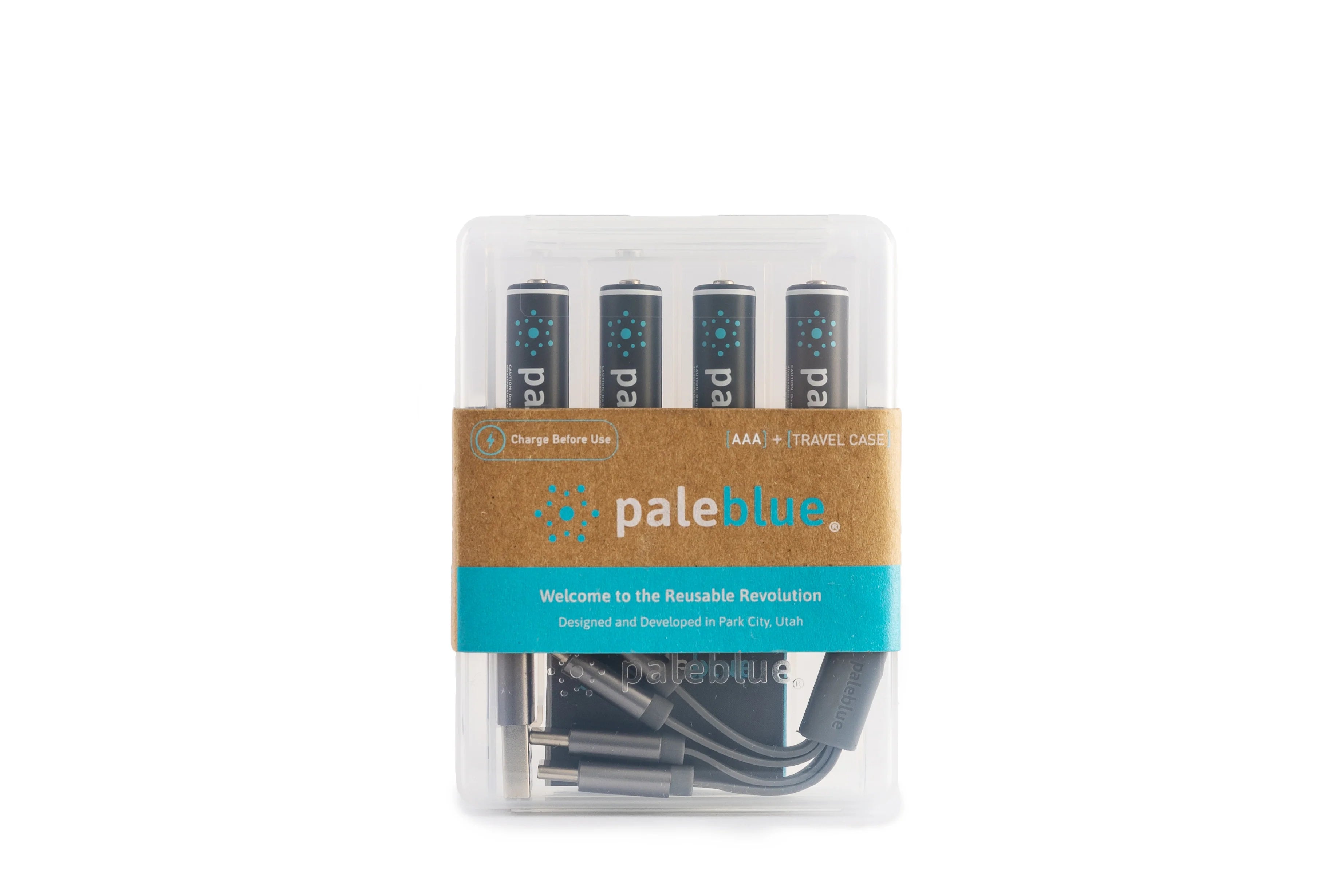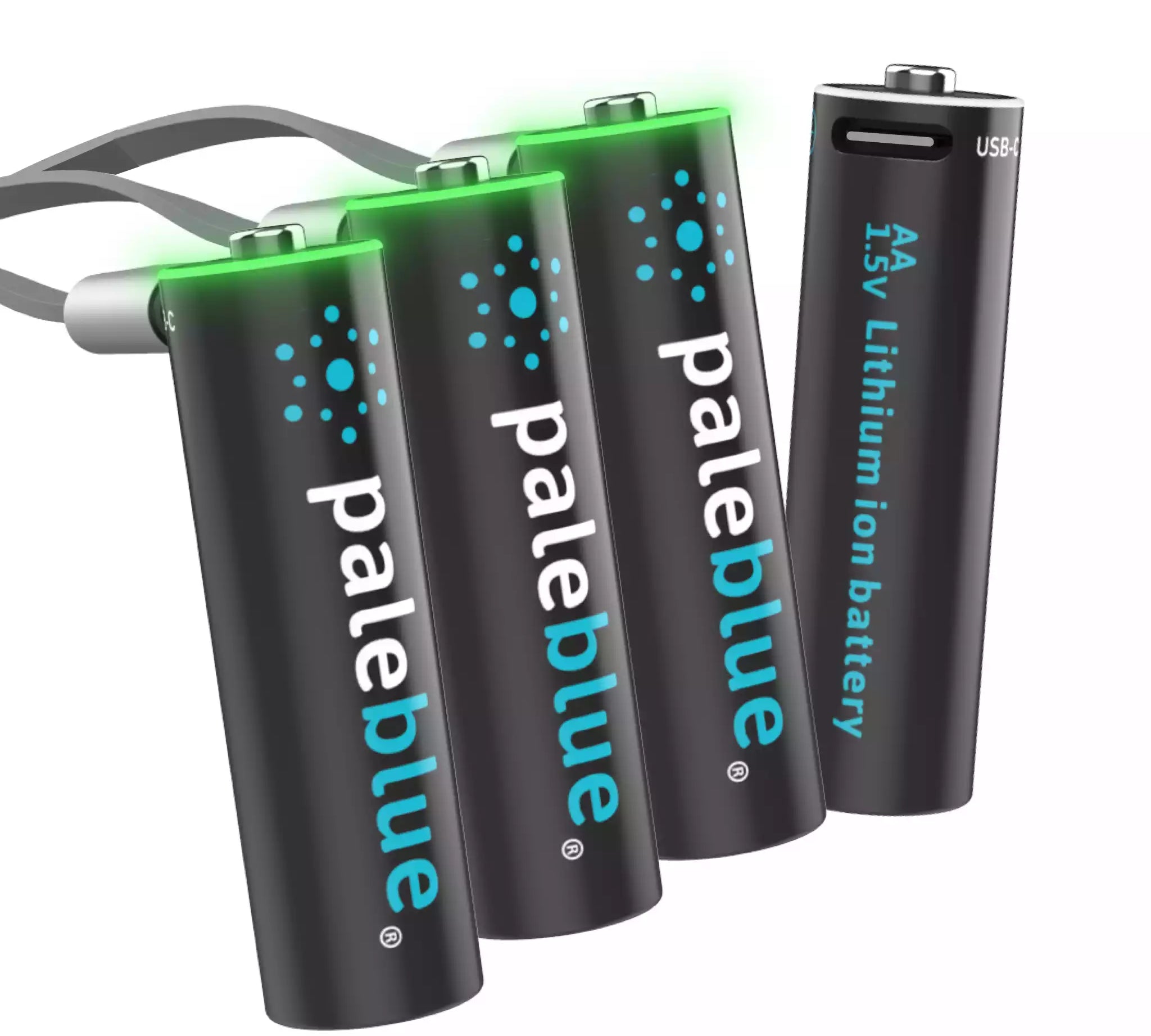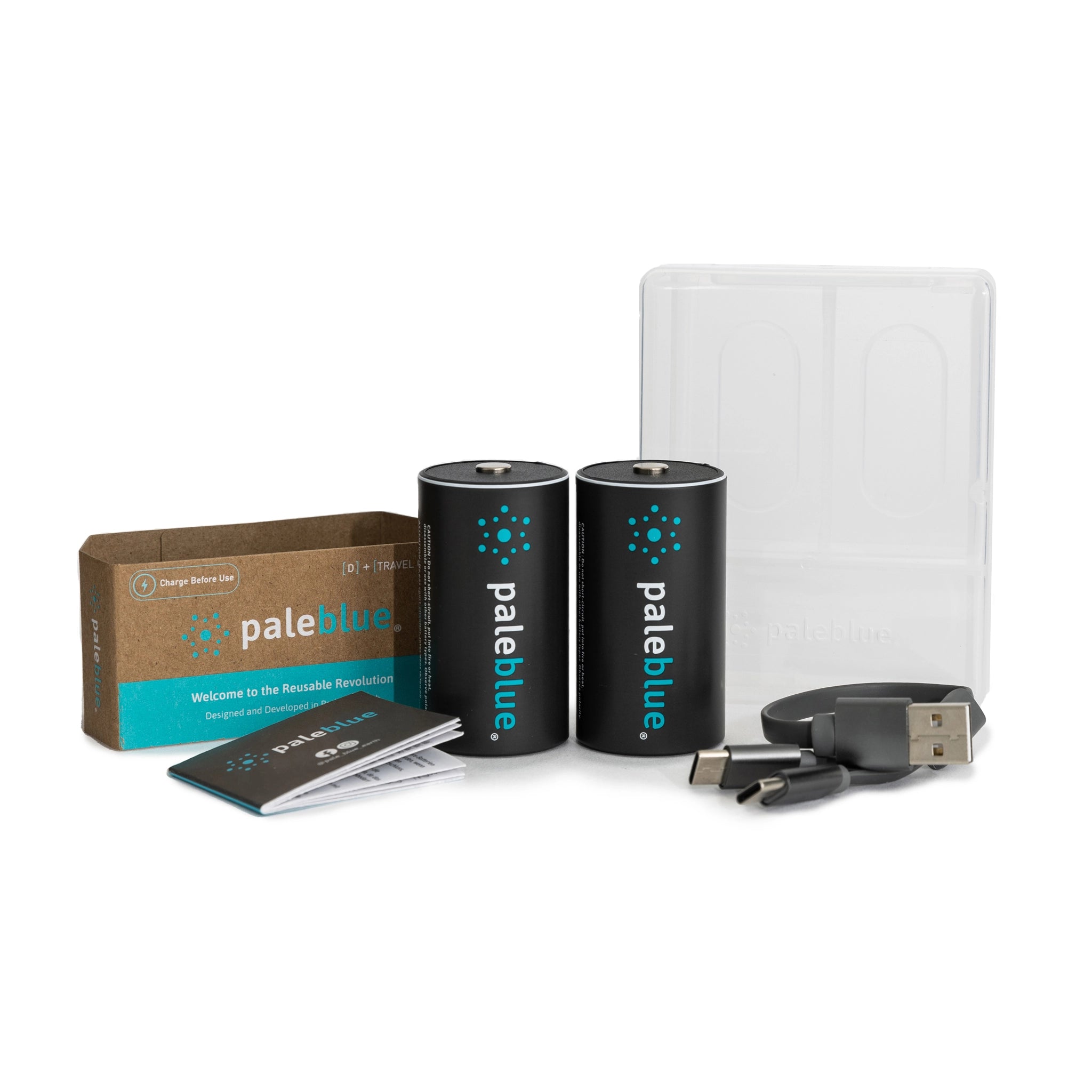Comparing Lithium vs. Alkaline Batteries

Last updated: May 2025
Batteries power a huge range of devices, from digital clocks to high-powered flashlights. Most common household devices use alkaline batteries by default, but many of them are designed to use lithium batteries instead. These two types of batteries may often have a similar shape and size, but their internal chemistry and performance are very different from each other.
Common Uses for Lithium and Alkaline Batteries
Lithium batteries, also known as lithium-ion or li-ion batteries, are rechargeable and can be reused over 1,000 times. They’re most commonly used in these devices:
- Personal electronics such as cell phones, laptops, gaming consoles, and wireless headphones
- Wireless power tools
- Medical devices
- Security systems
- Electric vehicles
- Energy storage systems
Alkaline batteries are single-use, and tend to be the most popular choice for electronic devices such as:
- Battery-powered toys
- Flashlights
- Wireless kitchen appliances
- Smoke alarms
- Digital clocks
- Remote controls
Keep in mind that while a few of these devices can be powered by either lithium or alkaline batteries, not all of them can. For example, only rechargeable li-ion batteries can store excess energy from solar panels, while alkaline batteries are best for low-drain devices like smoke alarms or digital clocks.
What is a Lithium Battery?
Lithium-ion batteries are rechargeable, meaning they last longer and are more eco-friendly than alkalines. They come in a wide variety of sizes and voltages, from AAAs to electric car batteries; the bigger the need for power, the bigger the battery. However, li-ion batteries are all made up of the same internal components: an anode, a cathode, a separator, and an electrolyte.
When the battery is discharging, the flow of lithium ions creates electrons in the anode; this causes the electrical current to flow through the negative end of the battery, powering the device. When the lithium battery is being charged, the opposite process happens. If the battery is taken care of correctly, it can be discharged and recharged over 1,000 times.
Advantages of lithium batteries
Lithium-ion battery technology has advanced by leaps and bounds over the years, making li-ion batteries some of the most advanced and high-performing batteries available. Compared to both alkaline and other types of rechargeable batteries, lithium-ion batteries offer quite a few advantages.
- Since they’re rechargeable, lithium batteries have a very long lifespan. They can last for more than 1,000 charge cycles, which could mean a few years of daily use. As far as shelf life goes, a lithium battery can last well over 10 years.
- Lithium batteries offer high energy density, which is a measure of how much power a battery can store relative to its size. These batteries also weigh up to 60% less than alkalines, which makes them perfect for things like large flashlights, handheld power tools or kitchen appliances, etc.
- Although lithium-ion batteries shouldn’t be charged in extremely high or low temperatures, they can still function well in them, making them ideal for outdoor activities like camping.
Disadvantages of lithium batteries
Lithium batteries may be the preferred choice for those who want long-lasting batteries, but there are still a few drawbacks to using them.
- In order to ensure a long lifespan, lithium-ion batteries should be cared for correctly. For example, they shouldn’t be overcharged, charged at sub-zero temperatures, or left to slowly self-discharge in storage. This means they’re a little more work to maintain than disposable alkaline batteries, but for most people this isn’t an issue.
- Due to differences in the materials and technology used, lithium batteries are more expensive than alkalines. This could make them less appealing to those who don’t want the upfront cost of a set of li-ion batteries.
- Lithium-ion batteries come with an extremely small risk of exploding or catching fire. This can happen if they overheat due to overcharging, or if they’re damaged by being hit or dropped. That being said, it’s good to keep in mind that a correctly used lithium battery only has a one-in-10-million chance of malfunctioning.
Comparing Cost
As mentioned above, lithium-ion batteries are more expensive per unit than single-use alkalines. However, when their initial cost is averaged out among hundreds of uses, lithium batteries actually cost far less per use than disposables.
The cost per battery can vary widely depending on the brand and size. For instance, an AA lithium-ion battery can cost as little as $5, or as much as $30+ for just one battery. In most cases, you get what you pay for; if you want a top-performing li-ion battery with safety features to prevent overcharging/overheating, then it’s recommended to spend more than the bare minimum.
What is an Alkaline Battery?
Alkaline batteries are a type of single-use battery; once they’ve been drained, they have to be disposed of. Just like lithium batteries, alkalines are available in many different sizes and voltages, but they all have the same three internal components: an anode, a cathode, and an electrolyte.
Electrical energy is created when the electrolyte oxidizes the zinc anode, which then reacts with the cathode’s manganese dioxide. This reaction can happen quickly when the battery is used in high-drain devices, or over the course of months in slow-drain devices.
Advantages of alkaline batteries
Even though they don’t offer the same level of performance as lithium-ion batteries, there are still several advantages to using alkalines.
- Because they’re so popular, alkaline batteries are easy to purchase, and are compatible with most devices. They can be found in all different kinds of stores, which usually makes them the most convenient choice.
- Alkaline batteries have a lower upfront cost than lithium-ion batteries (and other types of rechargeable batteries). While the cost per use is actually higher, the fact that the price tag per battery is significantly smaller makes alkalines the preferred choice for many.
- These batteries may not have the lifespan of li-ion batteries, but they do have a very slow self-discharge rate. The result is that they can last for years without use or maintenance; this is in contrast with rechargeable batteries, which have to be topped up every few months to avoid being drained through self-discharge.
Disadvantages of alkaline batteries
Even though alkaline batteries offer plenty of benefits, they also come with a few disadvantages.
- Alkalines are single-use; once they run out of power, they can’t be recharged. Even though battery recycling is fairly accessible in many areas, the majority of alkaline batteries get thrown away because it’s simply more convenient.
- While it’s true that the internal components of alkaline batteries are less toxic than those in lithium-ion batteries, they still have more of an environmental impact than rechargeables. Why? Because they only last for a single use, rather than lasting for hundreds of charge cycles.
- Energy density is an important measure of a battery’s overall performance, and alkaline batteries have a lower energy density compared to li-ion batteries. They can still be used in high-drain devices, but they’ll have to be replaced fairly frequently.
Comparing Cost
These batteries are more affordable if you’re buying smaller sizes (like AAs or AAAs); larger sizes (like C or D batteries) may put a bit more of a strain on your wallet, especially if they’re used to power high-drain devices and have to be replaced after just a few hours of use.
For reference, popular brands of AA alkaline batteries cost anywhere from $0.50 to $1.00, but it’s possible to find options that are both cheaper and more expensive.
FAQs: Lithium vs. alkaline batteries
Most people already know what they’re dealing with when it comes to alkaline batteries, but how do they compare to lithium batteries? These are some of the most frequently asked questions when comparing the two.
Can both lithium and alkaline batteries be recycled?
Each type of battery can be recycled; in fact, it’s strongly recommended to recycle every type of battery, since they all contain toxic chemicals that should be kept out of landfills. All but the smallest cities have recycling centers, and some even have pick-up recycling services.
While the average recycling center accepts alkaline batteries, they may not do the same for lithium batteries. Even though 90% of a li-ion battery can be recycled, it’s more difficult to do so. The good news? If you really want to make sure that your lithium batteries get properly recycled, you can mail them to organizations that specifically recycle this type of battery.
Which type of battery is more eco-friendly?
Provided that lithium-ion batteries are consistently used, they’re far more environmentally friendly than single-use alkaline batteries. With each charge cycle, the same battery is being used again, rather than being replaced by an entirely new one. This reduces the amount of new materials that have to be mined, keeps toxic chemicals out of landfills, and even cuts down on greenhouse gas emissions.
Are lithium and alkaline batteries interchangeable?
In most cases, these batteries aren’t interchangeable. This isn’t because they won’t physically fit in the same electronic devices, but because they have different internal chemistries and voltage outputs.
For example, the standard nominal voltage for an alkaline AA battery is 1.5V. For most lithium-ion AA batteries, it’s 3.7V. If the wrong voltage is used for an electronic device, this could result in damage to the device, the batteries, or both.
However, some li-ion batteries are designed to have the same voltage as their alkaline counterparts. In this case, they could be used interchangeably. Always make sure to check the manufacturer’s instructions for both devices and batteries, to prevent malfunction or damage.
Which are better – lithium or alkaline batteries?
Most devices are designed to accept one type of battery or the other, not necessarily both. If you’re buying batteries for a specific device, then the best choice will probably be the battery that gets the job done.
That being said, the answer to this question also depends on what your priorities are. If convenience is a priority, then alkaline batteries will probably be your first choice, since they’re more widely available than lithium batteries. They’re also the preferred choice for low-drain devices like smoke alarms, since they have a lower self-discharge rate than the average rechargeable battery.
If you’re looking for great performance or eco-friendliness, then lithium batteries would be the best option. Good-quality li-ion batteries consistently outperform alkalines, and their long lifespans make them much more environmentally friendly than disposable batteries.










